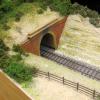EAW007735 ENGLAND (1947). Midland Road, Lucky Lane and environs, Bristol, 1947
© Hawlfraint cyfranwyr OpenStreetMap a thrwyddedwyd gan yr OpenStreetMap Foundation. 2026. Trwyddedir y gartograffeg fel CC BY-SA.
Delweddau cyfagos (11)
Manylion
| Pennawd | [EAW007735] Midland Road, Lucky Lane and environs, Bristol, 1947 |
| Cyfeirnod | EAW007735 |
| Dyddiad | 22-June-1947 |
| Dolen | |
| Enw lle | BRISTOL |
| Plwyf | |
| Ardal | |
| Gwlad | ENGLAND |
| Dwyreiniad / Gogleddiad | 359869, 172977 |
| Hydred / Lledred | -2.5776249724526, 51.453861719054 |
| Cyfeirnod Grid Cenedlaethol | ST599730 |
Pinnau

Ian |
Friday 1st of January 2021 11:48:15 AM | |

Budget |
Tuesday 16th of June 2020 07:06:26 PM | |

MB |
Wednesday 13th of November 2013 09:35:23 AM | |

Maurice |
Wednesday 13th of November 2013 07:09:23 AM | |

Maurice |
Wednesday 13th of November 2013 07:00:39 AM | |

Maurice |
Wednesday 13th of November 2013 06:55:20 AM | |

Maurice |
Wednesday 13th of November 2013 06:43:58 AM | |

MB |
Tuesday 12th of November 2013 11:10:54 PM | |

MB |
Tuesday 12th of November 2013 11:04:53 PM | |

MB |
Tuesday 12th of November 2013 11:04:22 PM | |

MB |
Tuesday 12th of November 2013 11:03:23 PM | |

MB |
Tuesday 12th of November 2013 11:02:28 PM | |

MB |
Tuesday 12th of November 2013 11:01:03 PM | |

MB |
Tuesday 12th of November 2013 10:55:31 PM | |

MB |
Tuesday 12th of November 2013 10:54:36 PM | |

MB |
Tuesday 12th of November 2013 10:53:35 PM | |
Bob Dixon worked in this signalbox and made the following comments on the Time Capsules site, under an image of Dr Day's Junction box, where he also worked: 'Yes,we had the full compliment at East Box. We were connected to West Box, Old Station Box, Goods Yard Box, Engine Shed Sidings Box ( LMS) Dr Days, North Somerset Junction Box and the Shunters Box. There were 23 Block bells and 365 levers. Every train movement had to be logged, including engine changes and shunts from the goods yard onto the main, plus of course all the passenger traffic and goods yard movements. On a summer weekend it was so busy that I couldn't take a break unless someone came up from the station to relieve me. There were 3 full time signalmen. On nights it was a little quieter, and I was allowed to work the box sometimes. Trying to identify bell codes from half a dozen block bells all ringing at the same time was something I eventually got used to.' Source: www.time-capsules.co.uk/picture/number2099.asp |

MB |
Wednesday 13th of November 2013 01:01:23 PM |


![[EAW007735] Midland Road, Lucky Lane and environs, Bristol, 1947](http://britainfromabove.org.uk/sites/all/libraries/aerofilms-images/public/100x100/EAW/007/EAW007735.jpg)
![[EAW007737] Houses and factories around the Hannah More School and Midland Road, Bristol, 1947](http://britainfromabove.org.uk/sites/all/libraries/aerofilms-images/public/100x100/EAW/007/EAW007737.jpg)
![[EAW007736] Houses and factories around Unity Street and Jubilee Street, Bristol, 1947](http://britainfromabove.org.uk/sites/all/libraries/aerofilms-images/public/100x100/EAW/007/EAW007736.jpg)
![[EAW007732] Houses and factories around Lucky Lane and Jubilee Street, Bristol, 1947](http://britainfromabove.org.uk/sites/all/libraries/aerofilms-images/public/100x100/EAW/007/EAW007732.jpg)
![[EAW007733] Midland Road, Jubilee Street and environs, Bristol, 1947. This image was marked by Aerofilms Ltd for photo editing.](http://britainfromabove.org.uk/sites/all/libraries/aerofilms-images/public/100x100/EAW/007/EAW007733.jpg)
![[EAW007731] Houses and factories around Lucky Lane and Midland Road, Bristol, 1947](http://britainfromabove.org.uk/sites/all/libraries/aerofilms-images/public/100x100/EAW/007/EAW007731.jpg)
![[EAW007738] Midland Road and environs, Bristol, 1947](http://britainfromabove.org.uk/sites/all/libraries/aerofilms-images/public/100x100/EAW/007/EAW007738.jpg)
![[EAW007734] Midland Road and environs, Bristol, 1947. This image was marked by Aerofilms Ltd for photo editing.](http://britainfromabove.org.uk/sites/all/libraries/aerofilms-images/public/100x100/EAW/007/EAW007734.jpg)
![[EAW007739] Houses and factories around Unity Street and Jubilee Street, Bristol, 1947](http://britainfromabove.org.uk/sites/all/libraries/aerofilms-images/public/100x100/EAW/007/EAW007739.jpg)
![[EAW007740] Houses and factories around Unity Street and Horton Street, Bristol, 1947](http://britainfromabove.org.uk/sites/all/libraries/aerofilms-images/public/100x100/EAW/007/EAW007740.jpg)
![[EAW007741] Midland Road and St Philip's Goods Yard, Bristol, 1947](http://britainfromabove.org.uk/sites/all/libraries/aerofilms-images/public/100x100/EAW/007/EAW007741.jpg)